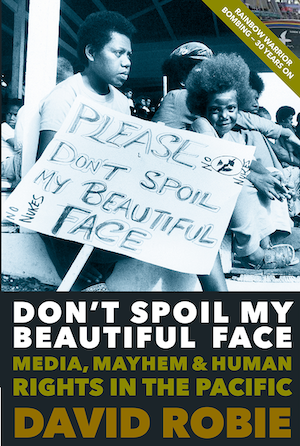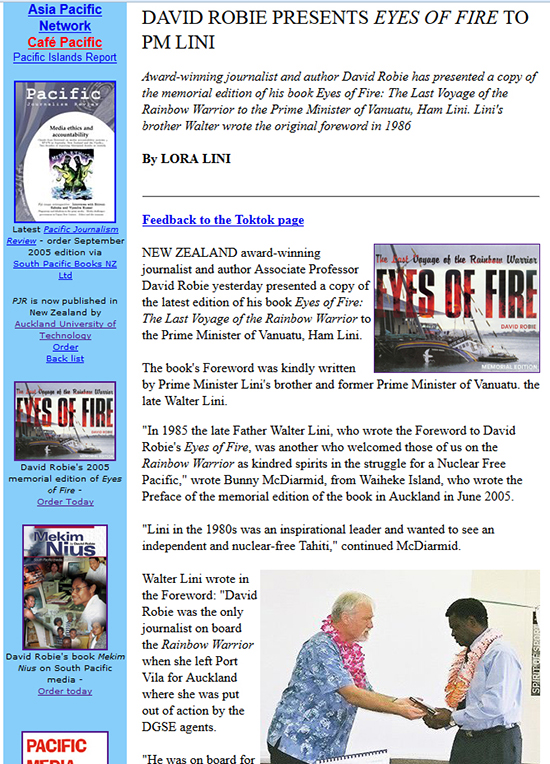Media International Australia/Pacific Media Watch
A leading international communications academic has described a recent book from the Pacific Media Centre as “investigative journalism at its best”.

Writing in the latest Media International Australia, Associate Professor Pradip Thomas, co-director of the University of Queensland’s Centre for Communication and Social Change, said David Robie’s Don’t Spoil My Beautiful Face: Media, Mayhem and Human Rights in the Pacific (Little Island Press) was an important addition to the literature on the media in the region, “uncovering the lapses of failed states, distant empires and domestic politics”.
The book by the PMC’s director covers many countries and territories in the Asia-Pacific region such as Bougainville, Fiji, New Caledonia, Papua New Guinea, Indonesia Philippines, Samoa, Tonga, Timor-Leste, Vanuatu and West Papua, and wide-ranging issues such as human rights, nuclear testing, climate change refugees and the “changing paradigms in Pacific journalism”.
Dr Thomas writes:
This book is a compendium of writings by David Robie and is a reflection of his long and eventful career as a journalist, media educator, political commentator and human rights activist in the Asia-Pacific region.
There are expats who opt for patronising accounts of the realities that they have been part of and others who have intentionally learned from the communities that they have been privileged to be a part of.
Thankfully, Robie belongs to this latter category. It is difficult to understand the Pacific precisely because of its extraordinary diversity, but also because there is a paucity of information on the realities of life in the Pacific.
David has tried hard to set that record straight and this book is a reflection of the reporting of key events that have shaped the Pacific – from the struggles related to the decolonisation of New Caledonia to the 1985 bombing of the Rainbow Warrior (on which Robie incidentally was still on board two days prior to the bombing), the political economy of the media in the Pacific in particular in Fiji, the travails of media education in the Pacific and the general volatility in the region caused by economic and political instability and the impunity with which colonial and neocolonial relationships continue to shape the Pacific.
The writings are important historical accounts of the shaping of Pacific nations caught as they are between their own internal ethnic complexities on the one hand, and external drivers of change on the other, who quite often deal with the symptoms and not the causes, thus opting for the “dependency” model and band-aid solutions.
It is extraordinary that David has been writing about climate change and nuclear fall-out refugees in the Pacific perhaps for much longer than anyone other journalist. The stories on the nuclear crisis include textured accounts of the lives of ordinary people who were mere pawns in the context of French nuclear testing in the Pacific and who endured humanitarian tragedies that were scarcely reported in the rest of the world.
That David covered such stories with an eye for detail and commitment to truth-telling is one of the strengths of this volume.
While the book includes accounts of struggles in the Philippines, Timor-Leste and Fiji, it also includes a very interesting section on the status of, and the challenges faced by journalism education in the Pacific.
Having been involved in assessing the programme at the University of the South Pacific, Fiji, I am familiar with David’s critique, in particular, the lack of enabling environments supportive of journalism education in the Pacific.
The volatility in the region shapes all enterprises including the practice of journalism and David’s account clearly reveals the consequences of this continuing uncertainty on both the practice of journalism and journalism education in the region.
This is an important addition to the literature on the media in the Pacific. Investigative journalism at its best, uncovering the lapses of failed states, distant empires and domestic politics.

- Republished from Pacific Media Centre Online.

